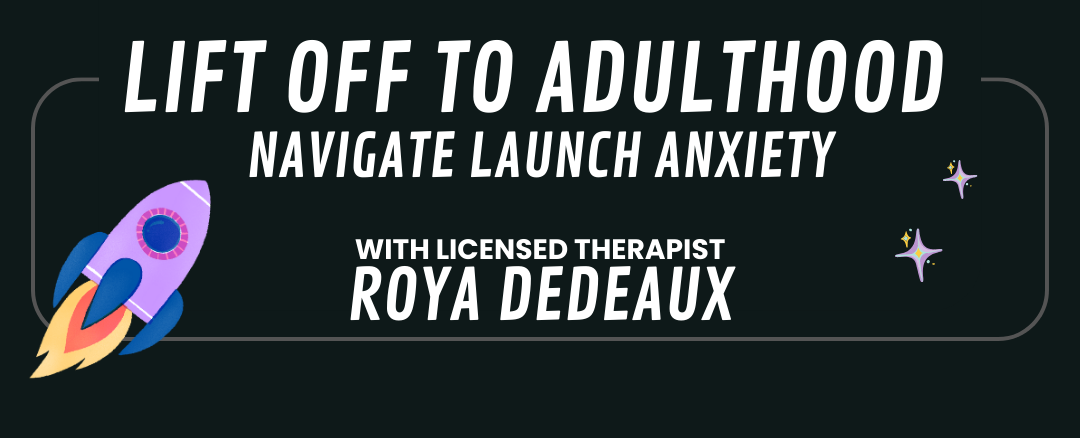How Can I Help My Teen Manage Their Strong Emotions?
Roya Dedeaux, MS, LMFT
"You're like trying to take a drink from a fire hose."
The year was 2000ish. I was in my teens. A friend I adored gave me this forthright personality assessment one night after I had been staying with her for a few weeks one summer. We had been writing poetry and making zines. Exploring her town by bus with journals in our bags. She knew me better than anyone. I trusted what she said to me.
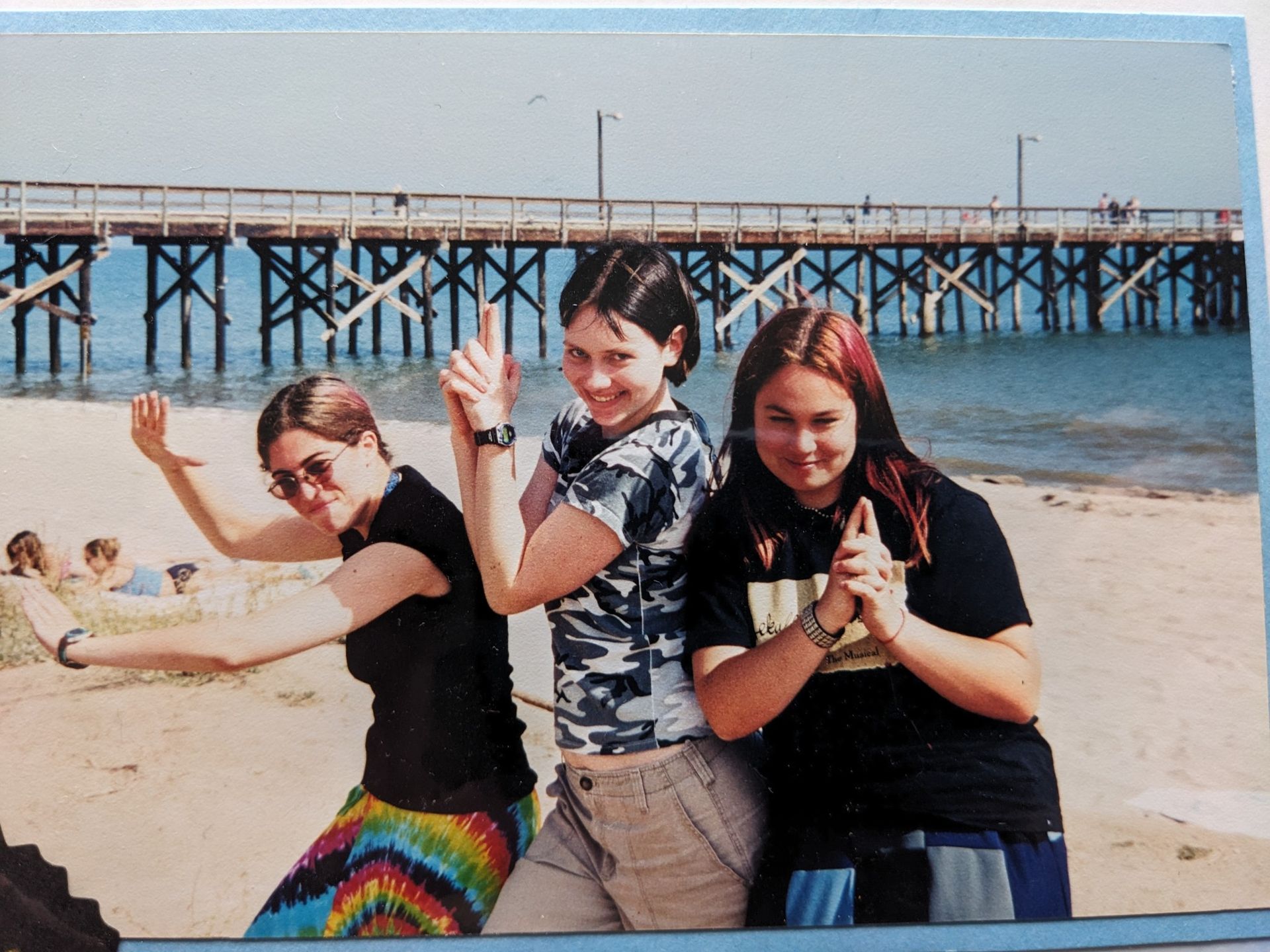
A bit of fear clenched my stomach. I knew I was a “too much” person. I’d heard the warnings in the adult voices around me my whole life. I knew the phrase, “if I give you an inch…” and knew I was a mile-taker. As a kid I used ALL the supplies. I sang loudly. I careened through my life with energy and intensity and vibrancy - and thanks to the Herculean efforts of my parents, I mostly felt acceptance of my big feelings and big self.
But it wasn’t always comfortable being me, all that color and emotion and songs to sing in one brain and one body. I knew I talked over people. I knew I took up more than my fair share of air space in a conversation. I knew that other people’s brains didn’t look like an advertisement for a maximilist’s art gallery on steroids.
When my bestie told me I was like trying to take a drink from a fire hose, I felt the familiar, “uh oh” sinking feeling. Was I about to find out I was too much for another friend? Had I been wrong about how much of myself I could be with her? She’d been witness to the bulk of my teenage, hormone-fueled decisions, loves and losses, plans and let-downs.
I think about that moment, and that friend (don’t worry - still great friends even after decades!) every time I get to work with another teen who tells me, with worry in their eyes about how big their feelings are. About how they don’t think anyone can handle it. About how they don't even know how to handle their own big feelings. I think about my poetry-writing-song-singing-painting-traveling-expressing-experimenting-mistake-making self every time another parent comes to me with the fear that they won’t be able to help guide their teenager through all the big stuff that’s happening.
“How can I help my teenager handle their big emotions?” is a question I get a lot.
Adolescence is undeniably a time of big ups and downs, changes that seem to happen overnight, huge upsets and dynamics within social circles, and of course - big feelings. When your teens feel overwhelmed, how do you help them manage their emotions in a healthy way? It can be challenging to be a parent watching your teen go through these highs and lows. This blog covers a few strategies to
help you navigate your teenager's big emotions
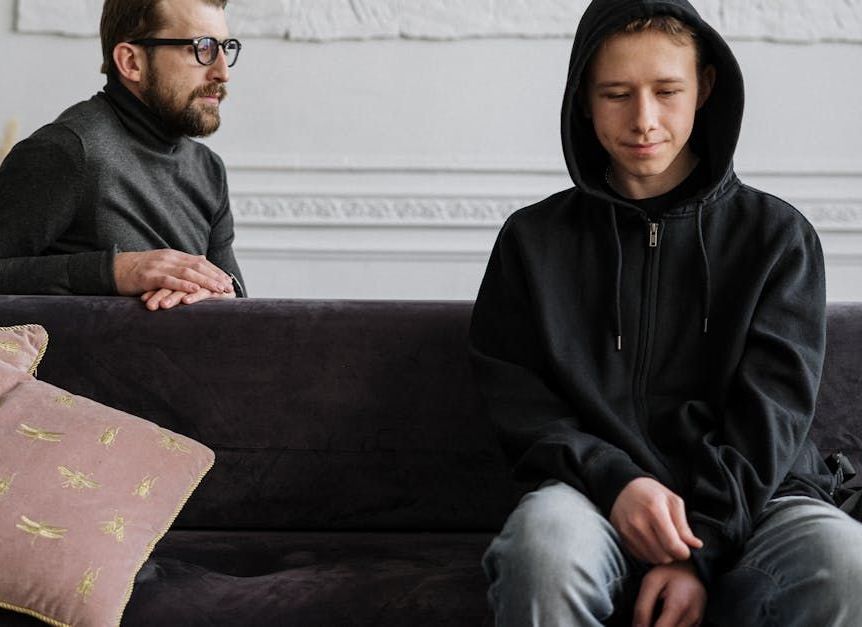
ONE: You don’t need to attend every party you’re invited to
Let me start with the number one skill I wish I could bottle and hand out to parents of teenagers: loving detachment.
Just because your teenager is riding a roller coaster, does not mean you need to be in the seat beside them.
Just because your teenager is experiencing the highs of The Best Day Ever or deep in the throes of desperate despair does not mean you need to be their on-the-ground correspondent.
Your teens get to have all their feelings, but you do not need to make them your own. In fact, please don’t.
Think about the last time you were mad about something. Let’s say you dealt with a particularly frustrating customer service encounter that’s left you steaming. If you go to your significant other to offload and express your irritation, and they jump in and become as angry as you are - almost like getting under the umbrella you’re holding in the rain - it sort of dilutes your feeling, doesn’t it?
Suddenly it’s also about their feelings. Rather than feeling supported and validated by that person, you are now paying attention to their feelings as well as your own.
There’s a time and place for this, sure, especially if the anger-making-situation equally involved both of you. But if the frustrating circumstance was yours, and they come in and match your big feelings equally, it can leave you feeling like a sneeze that got stolen. Kind of unsatisfied. Like you didn’t get the chance to feel the feeling fully.
This applies, unfortunately, to positive feelings as well. I often see parents get so invested in their kids' happiness that they hold onto things longer than their teenagers. I remember a friend of mine who was so invested in her daughter’s first love that she made it much harder for her teen to break up with him when it was appropriate and healthy to do so - because her daughter was worried about disappointing her mom.
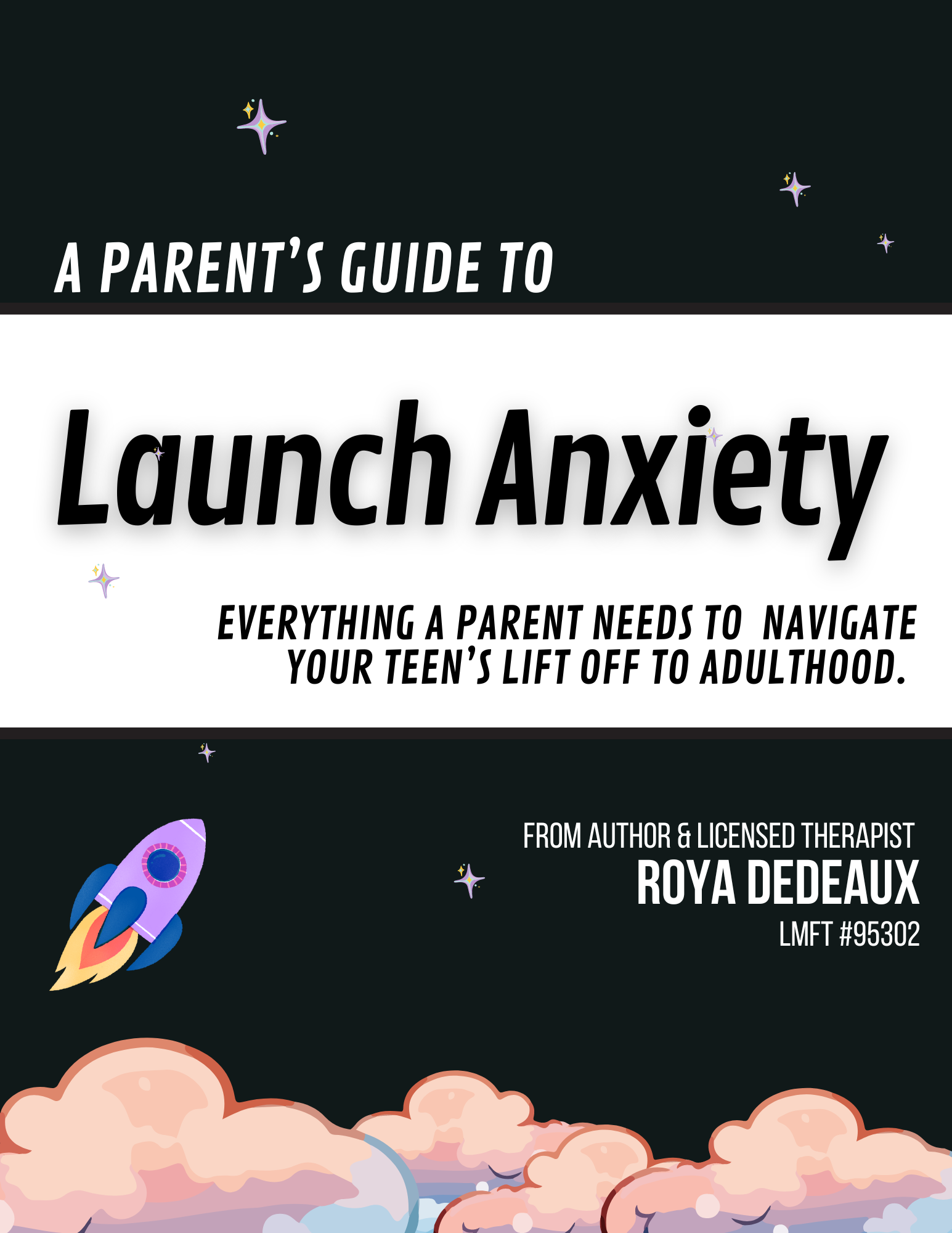
If you need help remembering how to have some detachment when your teenager is having big feelings - try this visualization on page 23 of my Parenting Guide.
TWO: Outlets. Give them all the outlets.
When I say help provide outlets for your teens emotions, I don’t mean just give them a journal. I mean your teenagers might need a ridiculous, extreme, over the top number and variety of catharsis and expressive emotional outlets and that’s normal and okay. Not every kid is going to be like me when I was a teenager, but just to give you a little glimpse - here is a non-exhaustive list of some of the ways my emotional needs were managed as a teenager.
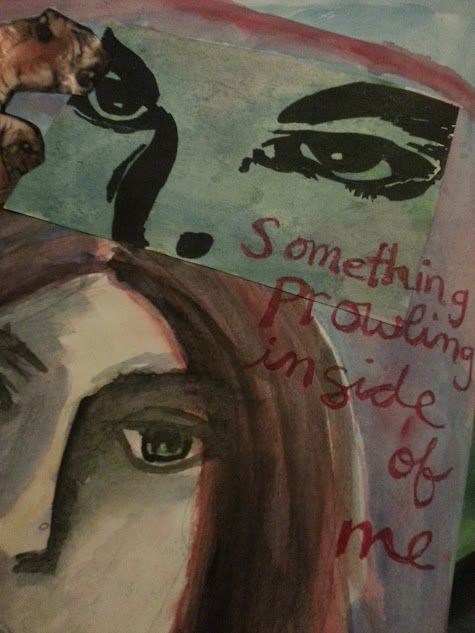
Expressive outlets
I wrote poetry, a lot. On my own, with friends, in journals, online, in the sand, on car windshields, in workshops, on my pants with sharpies, in letters, book margins, and more.
Painted - I painted huge canvases that took over our living room, the walls of my bedroom, the furniture in my room, in my journal, and more. I water colored on public transportation, filled the house with the smell of oil paints, used acrylics and more.
All the art - printmaking, some OG digital art where I took self portraits and altered them in old basic paint programs, made jewelry, altered books, ceramics, collage (oh my collage! The walls of my room were covered in huge poster board collages!) I made hundreds of zines, developed my own photographs…
Appearance was a form of art as well - I dyed my hair weekly, for awhile there. Painted my converse with silver glitter paint. Wrote poetry on my pants, sewed squares together to make quilted skirts… A teenager’s hair and clothing is a piece of their emotional expression, and boy did I emote out loud.
If your teen could benefit from more creative outlets with a low-pressure social network, check out my online art group for teens! Each week I provide a prompt designed for identity-exploration, and teens are encouraged to put their own spin on it.
Physical outlets
While I was making all this art, it also became clear that I needed a physical release too.
I loved to swim, and getting on a swim team was one of the best things that ever happened to me. Yes, there is a lot of benefit to the exercise, but it was also the tactile experience of being in water that's healthy for me. It also provided me with a tool that I use as an adult - when I need a change of mentality, I use water. If I can jump in a pool, great. If I am limited to a shower, I do that. Even washing my face or drinking a glass can be helpful when done with intent. There’s some interesting research about how cold water helps regulate the nervous system - don't forget, physical outlets do not need to equal exercise.
I performed quite a lot, in choirs and Shakespearean theater groups. I took improv workshops, helped behind the scenes at a lot of local theaters.
I was never going to be the kind of person who sat tall and took slow, meditative deep breaths. But I was the kind of person to sing, and sing a lot. Years later, as I was taking classes to prepare for the birth of my first child, the instructor shared how singing can help with nervous system regulation, manage pain, decrease the stress hormone (cortisol), and increase oxytocin in our brains.
When your teen hides away on their headphones, remember that listening to music is a vital part of emotional regulation.
Even if they aren’t singing, listening to music can release dopamine and other important neurotransmitters for emotional health and well-being.
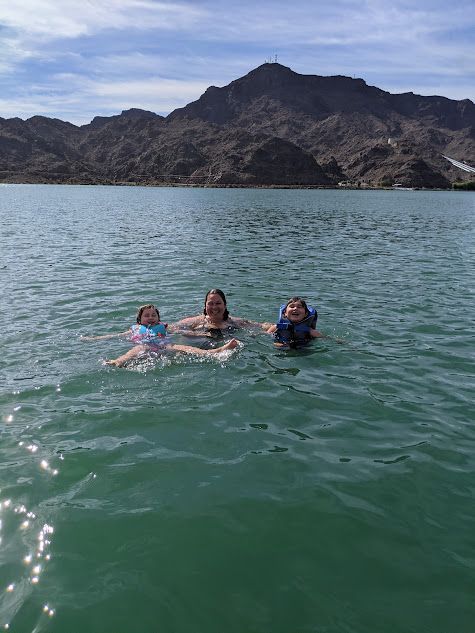
THREE: Relationships Matter
Friendships, family, and romantic relationships might sometimes seem like a source of some of the big feelings, but they are also a very important part of emotional well-being. The job of being a teenager is to figure yourself out. This can be a place of discord for lots of teens and parents, because it can feel like your teenager is rejecting you and your values (see emotional detachment in part 1) - but remember that this is an important and healthy stage of development.
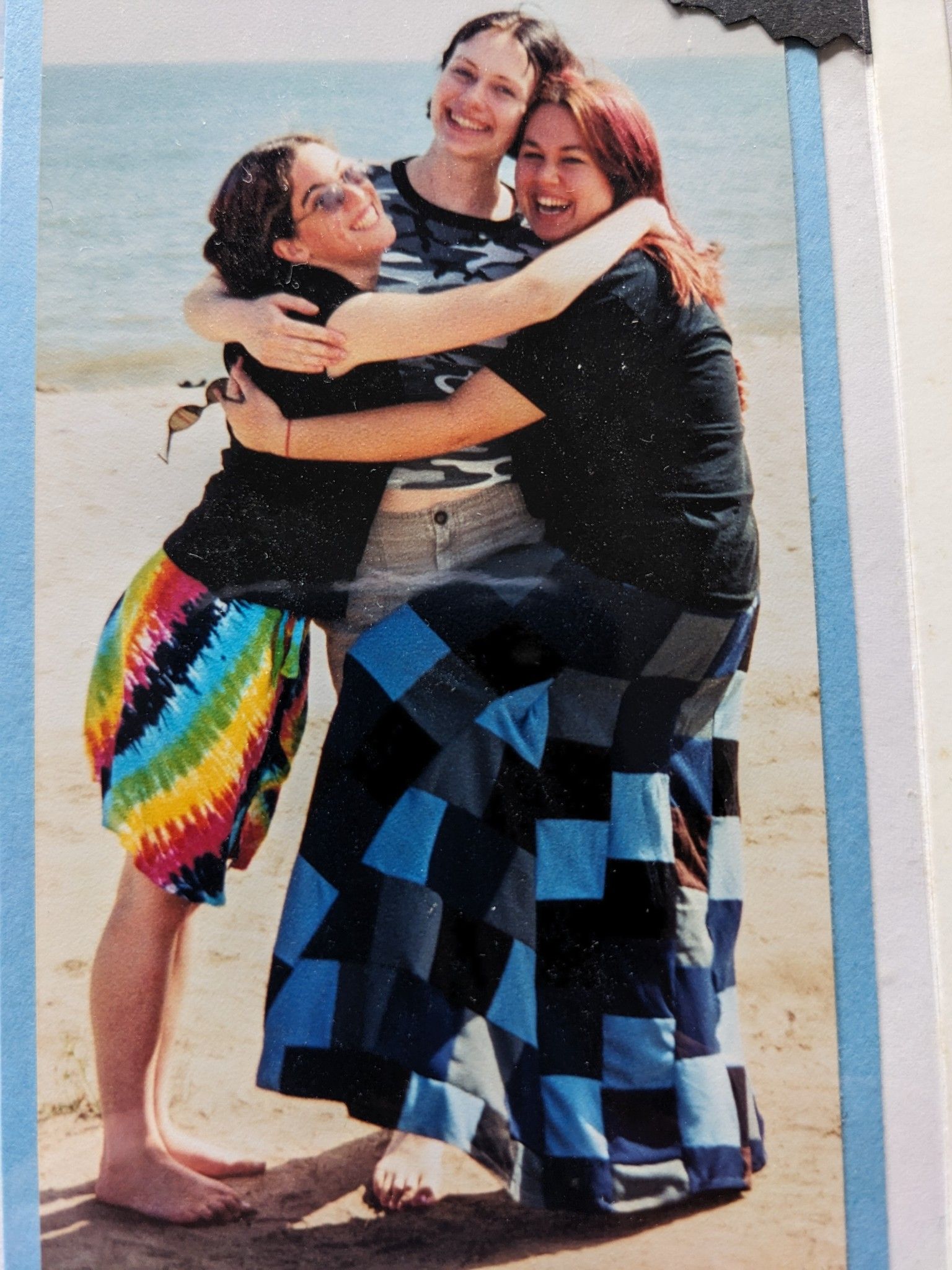
Teens need to have a lot of relationships with a lot of other people, to learn social and interpersonal skills, to figure themselves out, and also as a way to have a lot of practice having a lot of feelings and living through them.
Try to help facilitate relationships for your teenager that give them a secure safety network of people who can listen to them, be there for them, and even mentor them.
This support circle can include friends, relatives, people of all ages - and professionals. If your teen indicates that they are feeling particularly overwhelmed by their feelings, or needs a place where they know for certain that it’s safe to be themselves and express their emotions, then lucky for everyone, that’s what therapy is there for.
Especially if you notice persistent signs of distress, such as severe anxiety, depression, or changes in behavior, consider seeking professional help. A therapist can provide valuable tools and support to help your teen navigate their emotions.
Helping your teen manage their strong emotions requires patience, understanding, and consistency.
By being empathetic to their plights while maintaining some personal detachment, fostering as many healthy outlets as you can, and supporting their independence and positive relationships, you can help your teenager grow into an emotionally healthy adult. You can help your teen develop the tools they need to navigate their emotions that will carry them through into adulthood.

Roya Dedeaux is a Licensed Marriage and Family Therapist with a focus on using creative tools like art, writing, and recreation as a way to help teens and their families navigate adulthood anxiety.
Roya loves running her private practice, her online art group for teens, and helping teens & their parents through her various workshops and webinars! When she's not doing that, she loves to make messes with her three wild & wonderful kids where they live and play hard in Southern California.
Check out more about Roya, therapist, author, & speaker at
www.launchanxiety.com
Launch AnxietyBlog
